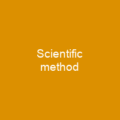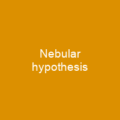What is a Hypothesis?
A hypothesis is like a detective’s hunch before they start solving a case. It’s an educated guess, based on observations and evidence, that can be tested through experiments to see if it holds up under scrutiny.
The Scientific Hypothesis
In the realm of science, a hypothesis is more than just a wild guess; it’s a carefully crafted prediction. Think of it as a bridge between what we observe and what we want to prove or disprove. For instance, if you notice that plants grow taller with more sunlight, your hypothesis might be: ‘Increased exposure to sunlight will result in faster plant growth.’
From Hypothesis to Theory
A scientific hypothesis can evolve into a theory after repeated testing and validation. Imagine a scientist who keeps planting seeds under different conditions and observing the results. If their findings consistently support their initial guess, they might eventually formulate a robust theory that explains plant growth.
Types of Hypotheses
Hypotheses come in various flavors. For example:
- A working hypothesis is like a provisional idea used to guide research. It’s not fully formed but helps researchers focus their efforts and gather more data.
- The deductive-nomological model uses logical reasoning to connect concepts, making it easier to test hypotheses systematically.
Evaluating Hypotheses
Researchers consider several factors when evaluating hypotheses:
- Parsimony: The simplest explanation that fits the data is often preferred. It’s like choosing the most straightforward path to a destination.
- Falsifiability: A hypothesis must be testable and potentially disprovable for it to be considered scientific. This ensures that claims can be rigorously examined.
Statistical Hypothesis Testing
When dealing with data, researchers often use statistical tests to determine if their hypotheses hold true. The null hypothesis assumes no relationship between the variables being studied, while the alternative hypothesis suggests there is a relationship. For example:
- The null hypothesis might be: ‘There is no difference in plant growth rates under different lighting conditions.’
- The alternative hypothesis could be: ‘Plants grow faster with more sunlight.’
Significance Levels and Testing Procedures
To test these hypotheses, researchers use significance levels such as 0.10, 0.05, or 0.01 to determine if the observed effects are statistically significant. The choice of significance level must be made before collecting data to avoid bias.
Examples Across Disciplines
Hypotheses can be found in various fields:
- Astronomical hypotheses: Predicting the behavior of celestial bodies based on observed patterns.
- Biological hypotheses: Explaining how certain genes affect traits or behaviors.
- Linguistic hypotheses: Describing language evolution and usage patterns.
- Meteorological hypotheses: Forecasting weather changes based on atmospheric conditions.
Conclusion
A hypothesis is the backbone of scientific inquiry, acting as a bridge between observation and understanding. By testing these provisional ideas, scientists can build theories that explain the world around us. Whether it’s in the lab or out in nature, every scientist starts with a hunch, but only those who test their hypotheses rigorously can truly make groundbreaking discoveries.

You want to know more about Hypothesis?
This page is based on the article Hypothesis published in Wikipedia (retrieved on December 13, 2024) and was automatically summarized using artificial intelligence.







